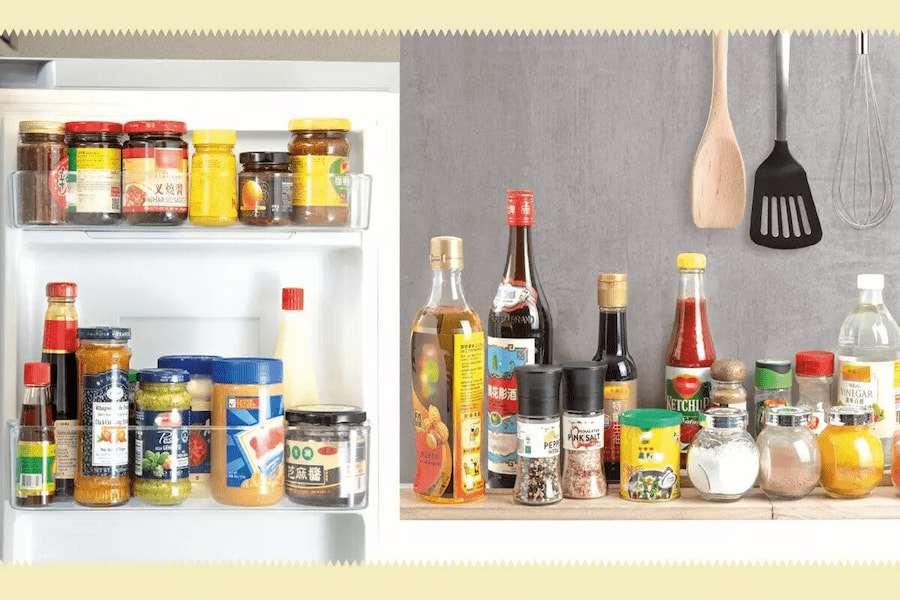From sauces, the favorite companions our meals, which are the one that gives us the zest and the depth to our culinary works, to the spices, the cuisine becomes to be enjoyable and diversity would arise due to its varied flavors. Whether a tomato sauce has the refreshing tangy taste, a creamy Alfredo which leaves the mouth feeling full or a hot sauce full of spice, these condiments are responsible for making meals from ordinary to extraordinary. We will highlight the scientific basis that explains how to keep sauces fresh and offer readers a vast collection of helpful hints on prolonging shelf-life of their selected sauces.
Temperature and Storage Considerations
The temperature at which the sauce is stored is critical to prolong its shelf life and prevent spoilage. When considering temperature and storage considerations for sauces, investing in a Commercial Chest Freezer For Sale can be a wise choice to ensure optimal conditions for long-term preservation and save money as well. As for the majority of sauces, they are ideally stored in a cool, dark place that is far from direct sunlight and heat emitting sources. It is recommended that the sauces which have perishable ingredients such as the dairy or the fresh ingredients should be kept in refrigerator to slow down microbial growth and preserve freshness.
Understanding the Basics of Sauce Preservation
Preservation of sauce involves identifying those vital characteristics of the process what causes it to spoil and understanding its nature. The oxidative, microbial growth and enzymatic reactions are the main reasons that the sauce can go bad for longer. Oxidation is something that happens when the sauce comes into ultraviolet light and the fats in it undergo a reaction where flavors changes and rancidity develops. Mold, yeast and bacteria could all form through microbial growths that are accelerated by the warmth and moisture.
The Importance of Proper Packaging
Packaging as such is a primary guarantee that sauce quality and enjoyment term will be fully satisfied. Instead of using the airtight containers or the jars, which are air tight will assist you in reducing exposure to oxygen but the risk of oxidation as much as possible. Also, the opaque and tinted containers hide them from light and from the fact light could bring into rapid rot. When you are choosing the packaging materials, think of the types that are durable and stable to withstand moisture and temperature changes to ensure suitable storage conditions are maintained. Similarly, vacuum sealing is one of the units that is best for anti-wilting by removing extra air from the outer packing.
Harnessing the Power of Natural Preservatives
The nature offers a variety of ingredients, having within them some built-in preservatives which are able to perform the function of lengthening the shelf life of sauces. Vinegar, which forms a significant part of many condiment-boxes, acts as an antibacterial because the acid in the vinegar prevents the growth of harmful bacteria and fungi. Citrus fruits, lemon & limes in particular, have citric acid, a natural preservative which brings out the flavor, too. Freshness is prolonged by the taste-enhancing feature of herbs and spices, as well as their antimicrobial properties that make it possible to include them on the ingredients list.
Regular Quality Checks and Rotation Practices
Frequently checking the quality of the sauces and keeping them fresh is the responsibility of the trained personnel. Periodic examination of the stored sauces to detect indications of spoilage like color alterations, textural changes, or a change in odor helps keep you ahead of the problems and sets measures to correct them. Putting into operation a rotation system using a FIFO approach (first in, first out) insures that older sauce are used before newer ones that according to this system reduces the risk of expiration and waste. Moreover, labeling containers with the day of preparation or expiration can be one of the elements of traceability and help in making the decision on the consumption.
Conclusion
In cooking, sauces rule as the key seasoning which is unique to lift food to the next level. Through implementing the skill of sauce preservation, you will be using your knowledge to make the sauces last longer and enjoy better taste for more time. Instead, the process involves mastering the science behind spoilage, through the application of appropriate storage techniques coupled with the use of natural preservatives, and ultimately, it’s also enjoyable and stimulating. visit Shayarii for more interesting blogs.

